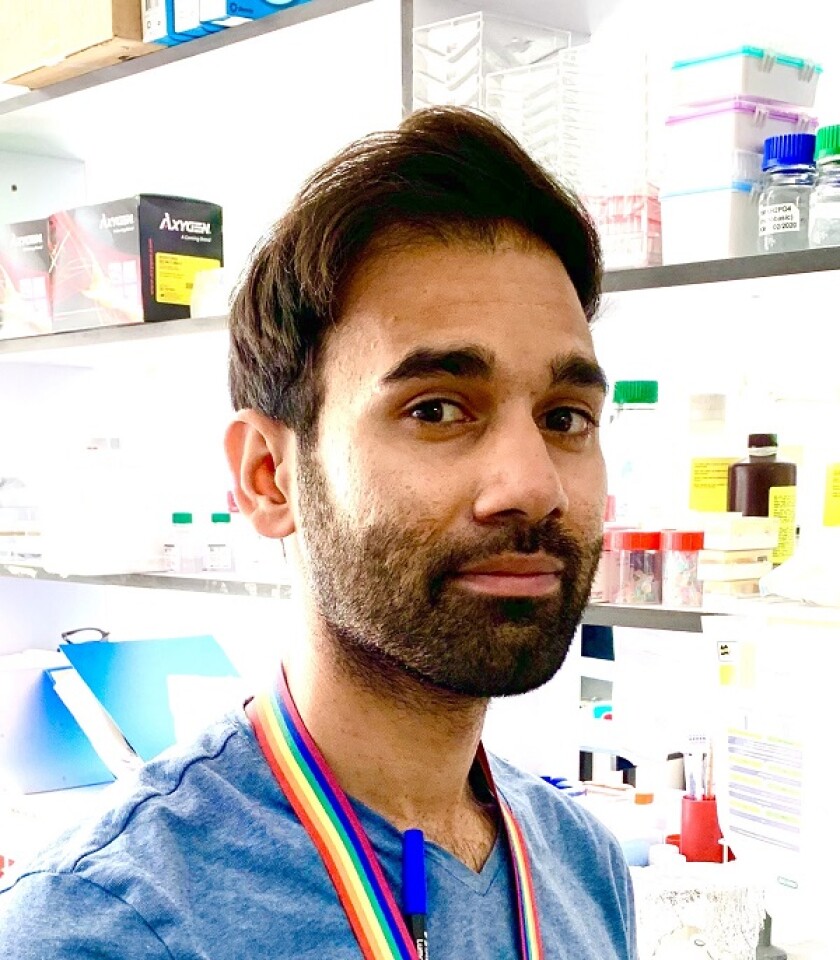As a scientist, how does it feel to be involved in researching a therapy that could be hugely important?
The global COVID-19 pandemic has proved to be very difficult and unpleasant. However, I am excited by the research being undertaken to find a way out of this situation. New work showing increasing understanding of the virus is being published every day, life-saving therapies are being reported and progress is being made towards a potential vaccine. Indeed, safety and immunogenicity have recently been cited as integral to the vaccine strategy of the Jenner Institute (University of Oxford), making it a forerunner as a vaccine candidate.
I am highly appreciative of the opportunity to explore an alternative COVID-19 therapy so that I (along with my colleagues, especially Dr Yue Du) can contribute to the ongoing collective research. I feel driven and excited when I think of contributing my skill set and expertise to the current crisis.
How collaborative is the research process, and how do you expect your results to be shared among the global community?
Research in the COVID-19 field has to be highly collaborative to allow for fast-paced and efficient science – exactly what is needed to beat this pandemic. In order for us to meet our research goals, we have established a fantastic collaboration with a lab in China, with researchers who are highly experienced in other respiratory diseases, including SARS and MERS. We share the same ambition to conquer SARS-CoV-2 and COVID-19. The research process involves sharing our resources and technology transfer between our labs so that we can produce research which has impact. Our key findings will be shared in easily-available reports as peer-reviewed publications.
Have you encountered any discussions on patent rights during this work?
I have not encountered any discussions about patent rights and IP because that is not largely applicable yet. We are prioritising producing outstanding research and establishing a platform against COVID-19. I should point out that the strategies we are employing towards a COVID-19 therapy are associated with existing patents and IP related to our lentiviral vector gene delivery system. This system is already being set up and developed to be used for a gene therapy clinical trial in the context of cystic fibrosis.
What were you working on before COVID-19? How has your workload changed as a result of the disease?
Prior to COVID-19, I was supporting the development of our lentiviral vector technology for production of cGMP-compliant vectors. This was in preparation for the first-in-human clinical trial using this type of vector to treat cystic fibrosis. During the UK lockdown, I have refocused my efforts on COVID-19-related research using the same platform. The type of work has not really changed. I am simply repurposing all my existing skills towards what we hope will be a game changer in the context of COVID-19. At the time of this interview, only essential COVID-19-related work is permitted and my research into cystic fibrosis gene therapy is currently paused. I look forward to picking this work up again, given the nature of the research – establishing a curative gene therapy for a respiratory disease.
Is there anything you find particularly stressful or difficult about your current role?
To be honest, I have never spent so much time actively keeping out of the way of people and colleagues in order to maintain social distancing. This makes working life rather stressful. It does help that I am quick on my feet (I think learning to dance salsa has helped there). Otherwise, I try to avoid feeling too stressed as I don't want to exhaust myself. I want to be able to concentrate all my attention and efforts on COVID-19 research.
Have you always worked in this scientific area?
This is my first postdoctoral position. My PhD looked at improving recombinant adeno-associated viral vectors for gene therapy applications. I am rather lucky that my experience during my PhD has allowed me to move quite smoothly into my current role, researching gene therapy for cystic fibrosis. This also extends to the COVID-19 research I am currently undertaking, which makes good use of my knowledge and expertise.











